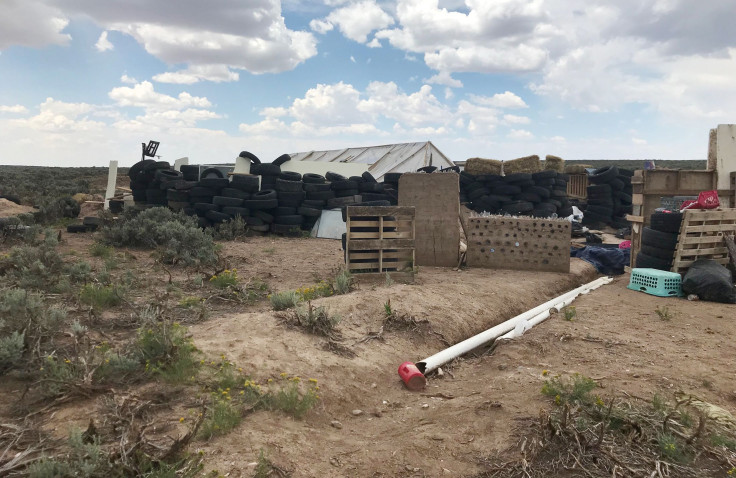New Mexico Compound Suspects No Threat, Judge Says, Could Be Freed Soon

The suspects arrested on charges of abusing 11 children after a raid in northern New Mexico earlier this month could be freed Tuesday, under the bail terms set by a state judge.
The state prosecutors' motion to detain the suspects was denied by Judge Sarah Backus on Monday as she felt the defendants were not seen as a threat to the community. A bond of $20,000 was set for each of them and the two men and three women were ordered to wear ankle monitors and have weekly contact with their attorneys. They were also prohibited from consuming alcohol or using firearms.
During the compound search Aug. 3, 11 emaciated children — ranging from ages one to 15 — were rescued. The authorities said the children were starved and ragged.
During Monday’s trail, the prosecutors gave accounts of an exorcism-like ritual and allegations of weapons training for children to persuade the judge to deny bond for the suspects.
According to the prosecutors, a 3-year-old boy, whose body was found buried in the compound, died during a ritual to cast away evils. However, his family believed he would "return as Jesus" to identify "corrupt" targets for them to attack. The body was reportedly washed several times and wrapped in sheets before being buried.
The state prosecutors outlined evidences to prove some of the suspects were planning an attack. According to them, Siraj Wahhaj, a suspect, took weapons classes before coming to New Mexico, and the books found during the raid at the compound had lessons on building firearms.
However, the defense attorneys argued the guns found were common weapons that could be bought at any retail stores, the New York Daily News reported.
Tom Clark, the attorney representing Wahhaj, said he did not make any attempts to defend their compound as the authorities closed in with search warrants.
“There was no gun battle, there was no resistance,” Clark said.
The prosecutors were also accused by Clark of subjecting the adults at the compound to uncommon standards, which he claimed was due to their race and Muslim faith.
“They are black and they are Muslim. If these were white people of Christian faith who owned guns, it’s not a big deal. ... But they look different and they worship different than the rest of us,” he said.
Prosecutors denied the allegation and said the suspects came into New Mexico on a dangerous mission.
Deputy District Attorney Timothy Hasson said, “This was not a camping trip and this was not a simple homestead of the kind that many people do in New Mexico.”
“What I've heard here today is troubling, definitely. Troubling facts about numerous children in far from ideal circumstances and individuals who are living in a very unconventional way,” Backus said, the State reported.
Though the family claims the body was of Wahhaj's disabled son, medical examiners have not yet identified it.
© Copyright IBTimes 2024. All rights reserved.




















